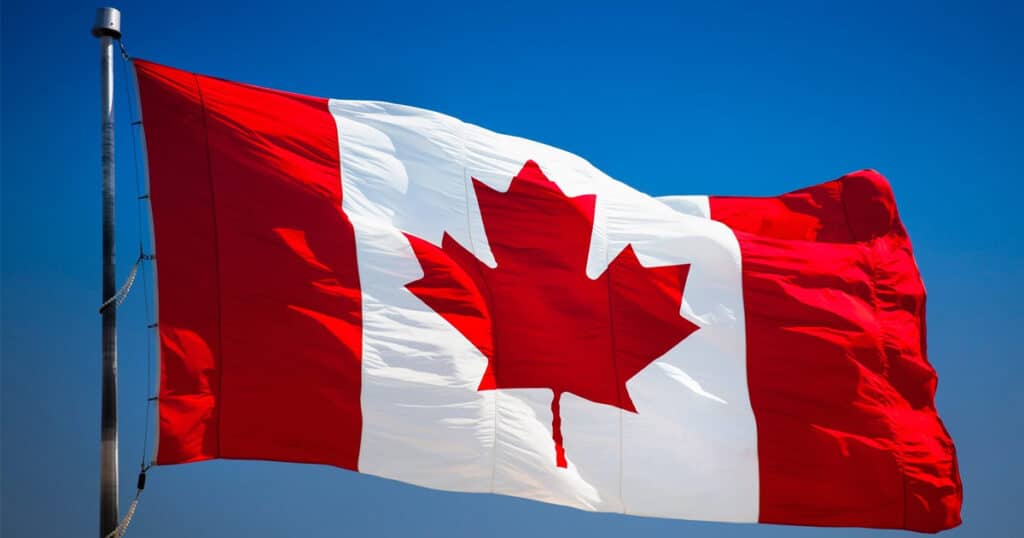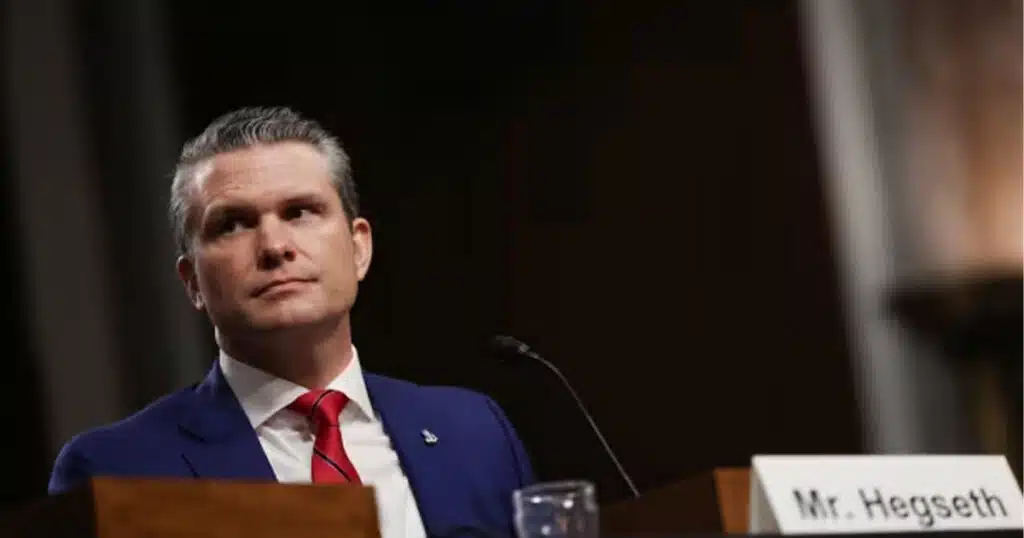
Canada is Not Satisfying Core U.S. National Security Concerns
While previous U.S. administrations have been lenient on Canada, increasing global tensions and the concomitant strategic goals of the Trump administration should be sufficient incentive for a realignment of Ottawa’s national security practices. Canada’s current national election will have a significant impact on whether Ottawa continues to pursue a foreign policy that is provocatively cosmetic or strategically aligned with the U.S. A report from the Washington-based think-tank CSIS (The Center for Strategic and International Studies) argued that it was U.S. President Donald Trump’s perception of Canadian non-cooperation that is the root cause of recently strained U.S.-Canadian relations.
The Trump administration’s hemispheric goals in North America are most likely those outlined by Project 2025, given the large number of high-profile project-associated conservatives among his political appointees. Their goals are to achieve continental self-sufficiency in manufacturing, innovation, and security, given that the U.S. has already achieved energy autarky through fracking. With respect to Communist China, these efforts are as much to do with denying the benefits of trade to a hostile and non-democratic adversary, as they are to eliminate disruptions and threats to America’s supply-chains. Mature economic hegemons, because of the inevitable global diffusion of technology, retrench when the costs of maintaining their outsized navies and open markets outweigh the returns on investment. Rationalizing and integrating Canada and Mexico into these plans, as well as Greenland, Cuba, and Venezuela, are key to this economization.
The People’s Republic of China has emerged as both a key strategic rival and an economic partner for many nations in the Western Hemisphere. Beijing has proposed economic and political alternatives to Washington for foreign investment via its Belt and Road Initiative. Furthermore, Canada’s significant economic reliance on China could hinder U.S. plans for hemispheric economic integration. China is Canada’s second largest goods trading partner. Although Chinese investment in North America is only 3.9% of its worldwide disbursements, Canada is markedly more exposed to Chinese commercial retaliation than the U.S. The Project 2025 report accuses China of aggressive manipulation of its export credits in order to compel U.S. allies, including Canada, to compromise their product content requirements, in exchange for access to China’s consumers. Project 2025 proposed that the U.S. counter Chinese efforts by an application of retaliatory measures through EXIM.
During the Cold War, and in fact as far back as the U.S. Civil War, Canada’s negligently ineffective counter-espionage capacity has made it a favored base for hostile intelligence agencies targeting the United States. Montreal was in fact the transshipment point for much of the Soviet penetration of the Manhattan project, an effort which was ultimately detected by the British, not Canada. Igor Gouzenko, whose defection from the Soviet embassy in Ottawa triggered the beginning of the Cold War, was initially spurned by Canadian authorities. The RCMP authors of the Sidewinder Report, which alerted Canadian authorities to foreign intelligence efforts after the end of the Cold War, in particular China, were sidelined by the Liberal Party government then in power. Identity politics has disincentivized the Canadian government from alienating new key ethnic constituencies created by mass immigration. Canada’s population of 41 million is approximately one quarter foreign born, with over twice the per capita proportion of Chinese and Indian immigrants as compared with the U.S. This has a concomitant impact on voting preferences related to diplomatic policy. Foreign interference in the Canadian electoral process was confirmed by a government commission in January of 2025. Most recently, traitor Cameron Ortiz, the senior Canadian inter-agency intelligence coordinator who sold secrets to the Cartels and attempted to do so with China, was detected by the FBI, not Canadian authorities.
CSIS’s (Canadian Security Intelligence Service) 2023 Public Report identified the four leading foreign interference and espionage threats to Canada: The People’s Republic of China, the Russian Federation, the Islamic Republic of Iran, and India. One CSIS assessment indicated that “state actors are able to conduct foreign interference successfully in Canada because there are few legal or political consequences,” remarking that foreign interference was “low-risk and high-reward.” The same report admitted that assessing the damage inflicted by foreign interference is made difficult by the complexity of measuring changes in public sentiment. Although the report suggested a remedial communications strategy to educate the public, such as through the social media like X, its analytics page reveals its limited outreach. CSIS is an institution that is not well known to the Canadian public. Only 34 per cent of those were able to identify the purpose of CSIS.
A report by the National Security and Intelligence Review Agency (NSIRA) identified information sharing impediments in Canada’s intelligence community, in particular between CSIS and the federal government, that retarded addressing foreign interference in the last two federal elections (2019 and 2021). The report indicated that there were significant disagreements between constituent components of that community, both within and across organizations, as to whether, when, and how to share what they knew.
The broader methodological issue, well known among political scientists, is the difficulty of controlling for the myriad of dynamic variables that affect voting sentiments during an election, which is necessary to isolate and detect the effect of foreign influence. Consequently, the NSIRA report highlighted CSIS’ failure to implement an adequate internal training and procedure regime to deal with political datasets, which must comply with privacy data laws. Canada’s externally focused SIGNIT agency, the Communications Security Agency (CSE), was also found to have violated privacy laws due to poor implementation. Canada could find itself in a similarly compromising situation to that of Australia in 1947 during the early Cold War period. Soviet penetration of the Canberra government led both the U.S. and UK to exclude Australia from intelligence networks and other defense projects.
Most saliently, Project 2025 has pushed the proposal that Washington reciprocate against U.S. allies that fail to take far more responsibility for their own conventional defense and share the defense burden with the United States. Canada only spends 1.34% of its GDP on defense and is in a NATO cohort that is the farthest below the minimum threshold of 2% of GDP. In April of 2024, Canada announced its Defence Policy Update and unveiled a largely unsatisfactory plan to reach 1.76% of GDP defense spending by 2029-2030. However, CSIS projects that Canada will not reach the 2% spending target even by 2030, and even the Canadian Parliamentary Budget Officer has stated that the 1.76% goal is unachievable with the funding provided by the Canadian government.
Dissatisfied with the credibility of Canada’s commitment to reaching the 2% target, 23 U.S. senators (under the Biden administration), sent then Canadian Prime Minister Justin Trudeau a letter urging him to develop a credible strategy to satisfy U.S. expectations of Canada’s contribution to collective security. At a NATO summit in July 2024, Trudeau announced that Canada would reach the 2% goal by 2032, although he deferred the promulgation of a plan to his successor Liberal Prime Minister Mark Carney, who has also not elaborated how the spending target would be achieved. Moreover, Canada had delayed following through on its continental defence commitments, including modernizing NORAD and investing in Arctic security, for decades. Both Trump and Vice-President J.D. Vance have publicly threatened NATO members who fail to reach the 2% spending target, with abandonment, and have further increased their demands for defense spending to 5%. Given the new priority given to continental security by the Trump administration, Canada can no longer avoid Washington’s gaze with half-measures and tactics designed to delay defense investments until the next U.S. election.
Dr. Julian Spencer-Churchill is associate professor of international relations at Concordia University, and author of Militarization and War (2007) and of Strategic Nuclear Sharing (2014). He is a former Operations Officer, 3 Field Engineer Regiment, from the latter end of the Cold War to shortly after 9/11.
Ulysse Oliveira Baptista is a Political Science student at Concordia University Montréal. He is an associate researcher at the Canadian Center for Strategic Studies.
Maximilien Hachiya is a War Studies scholar at King’s College London.
This article was originally published by RealClearDefense and made available via RealClearWire.



